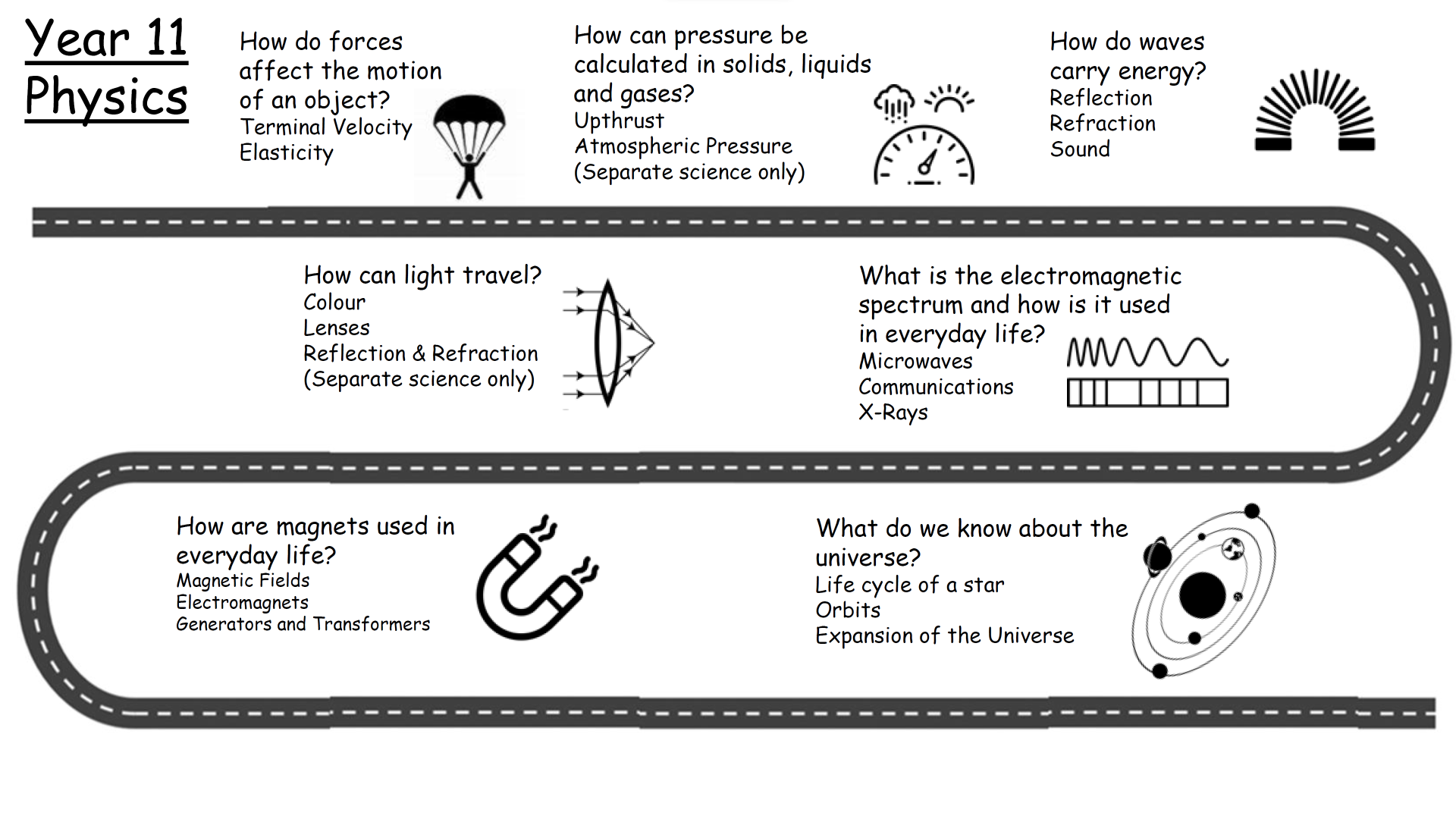Science Department
At Shavington Academy, in the science department, we encourage pupils to learn through investigation and discovery. Using practical experimentation and research to develop a depth in scientific knowledge, building transferable skills we need later in life.
The three sciences; biology, chemistry and physics are studied equally, and we offer a separate science course at KS4.
Pupils will examine topics from the building blocks of life, molecules and matter, to the laws of physics, which govern the world we know. These topics are revisited over 5 years to build a high level of understanding for each individual pupil.
We also discuss important current developments to relate learning to real life and how science can impact us all.
See below departmental contact information for science. If you are unsure who to contact initially, please contact the Curriculum Leader, Miss S Foster.
| Miss S Foster | Curriculum Leader | |
| Mrs H Barlow | Assistant Curriculum Leader of Science | |
| Mrs R Threadgold | Advanced Skills Teacher | |
| Mr R Betteley | Teacher of Science | |
| Mrs N Seddon | Teacher of Science | nseddon@shavington.academy |
| Mr C Booth | Teacher of Science | cbooth@shavington.academy |
| Mrs S Hebden | Teacher of Science | shebden@shavington.academy |
| Mr L Stewart | Teacher of Science | lstewart2@shavington.academy |
| Mrs E Doughty | Assistant Head & Teacher of Science | |
| Mr K Harrison | Teacher of PE & Science | |
| Miss R Hime | Teacher of PE & Science | |
| Mrs L Grainger | Teacher of PE & Science |
Key Stage 3 Journey
Our KS3 course is designed to encapsulate all elements of the science national curriculum. Learning is sequenced carefully to support pupils in gradually building an understanding of scientific phenomena and how the world around us works. All pupils students follow a balanced curriculum, clearly divided into biology, chemistry and physics big questions. As well as developing our pupils’ knowledge and understanding of scientific theory, our curriculum has an integrated working scientifically component and a clear focus on literacy and communication that seeks to develop pupils’ confidence in articulating their scientific ideas.
Year 7 Learning Journey
Year 8 Learning Journey
Year 9 Learning Journey
Key Stage 4 Journey
GCSE Science Courses & ExaminationsAQA Combined Science: Trilogy (8464) – most pupils.
A combined science qualification or ‘double award’, covering biology, chemistry and physics to give the equivalent of TWO science GCSEs
Excellent preparation to study many science courses after Key Stage 4
Accepted for A level courses
Separate Science CourseAQA Separate Sciences
GCSE Biology (8461), Chemistry (8462) and Physics (8463) gives THREE GCSEs
Provides an excellent foundation for A-level
When: All exams take place at the end of the course in Year 11.
Question types: multiple choice, structured, closed short answer and open response.
Tiers: Foundation; GRADES 1-5 and Higher; GRADES 4-9.
Marked on a 17 point scale. 9-9 is the highest, 1-1 is the lowest.
Weighting: the papers are equally weighted. Each is worth 16.7% of the grade and has 70 marks. All students will take six papers, a Paper 1 and Paper 2 in Biology, Chemistry and Physics.
Combined Science: All examinations are 1 hour and 15 minutes.
Separate Science: All examinations are 1 hour and 45 minutes.
Year 10 Biology Learning Journey
Year 10 Chemistry Learning Journey
Year 10 Physics Learning Journey
Year 11 Biology Learning Journey
Year 11 Chemistry Learning Journey
Year 11 Physics Learning Journey
Mathematical Requirements
Pupils will be asked to demonstrate a range of mathematical skills within their science examinations. These include: arithmetic and numerical computation, handling data, algebra, graphs, geometry and trigonometry. Questions will target maths skills at a demand suitable to the tier of paper.
Pupils can use, and are encouraged to bring to school, a scientific calculator. The proportion of marks dedicated to maths skills per subject: biology 10%, chemistry 20% and physics 30%. Physics maths skills include recalling and applying a list of physics equations.
Practical Assessment
Practical work in science is vital to support and consolidate scientific concepts, to develop investigative skills and to build and master the practical skill itself. GCSE assessments are designed to assess practical understanding, allocating 15% of the marks to practical questions.
The practical investigations to be studied are designed by the exam board and may be carried out as class practical activities or demonstrations. Pupils study 8 required practical investigations for each separate science course or 20 in total for the combined science course.
Revision Help




















